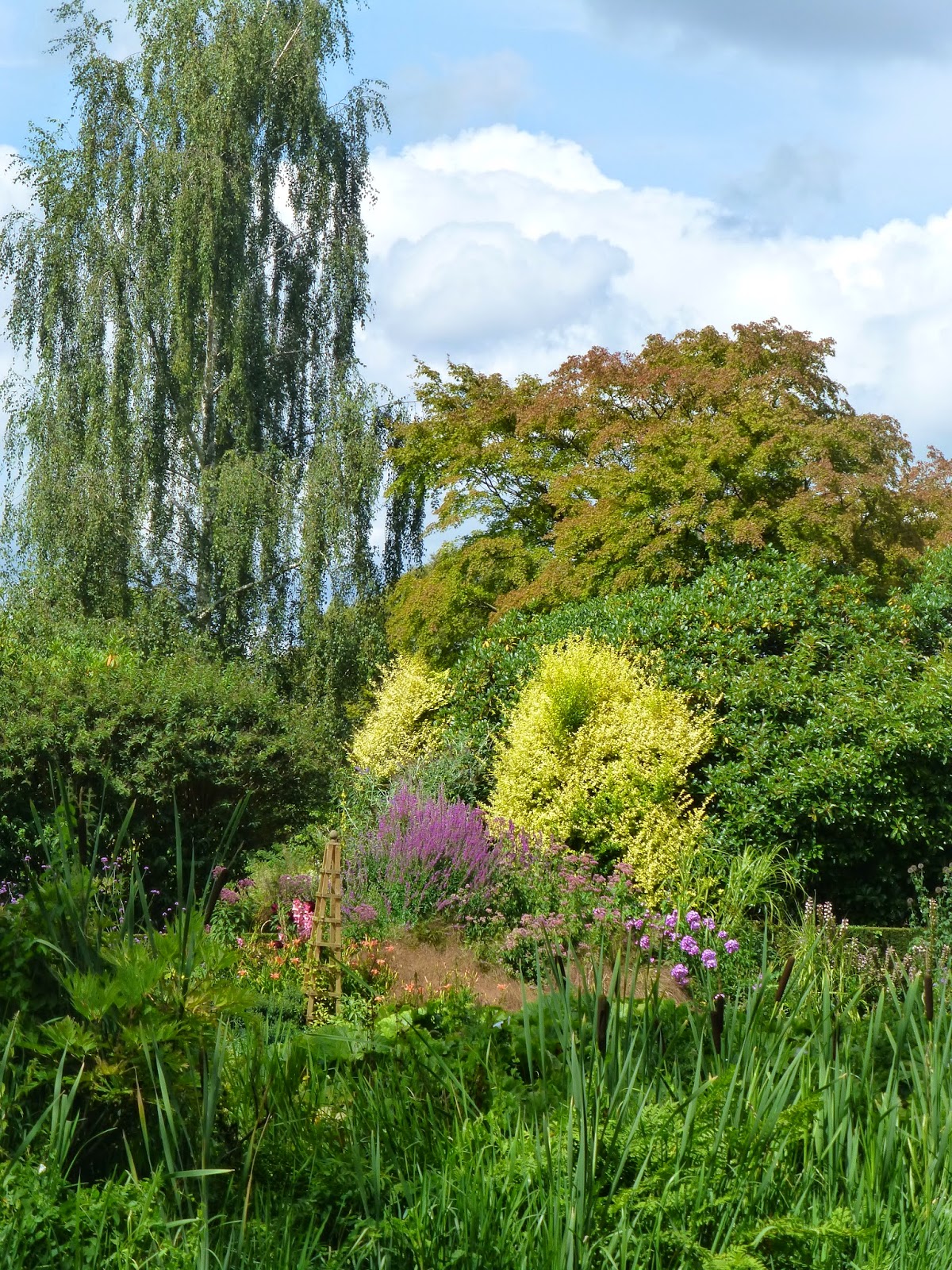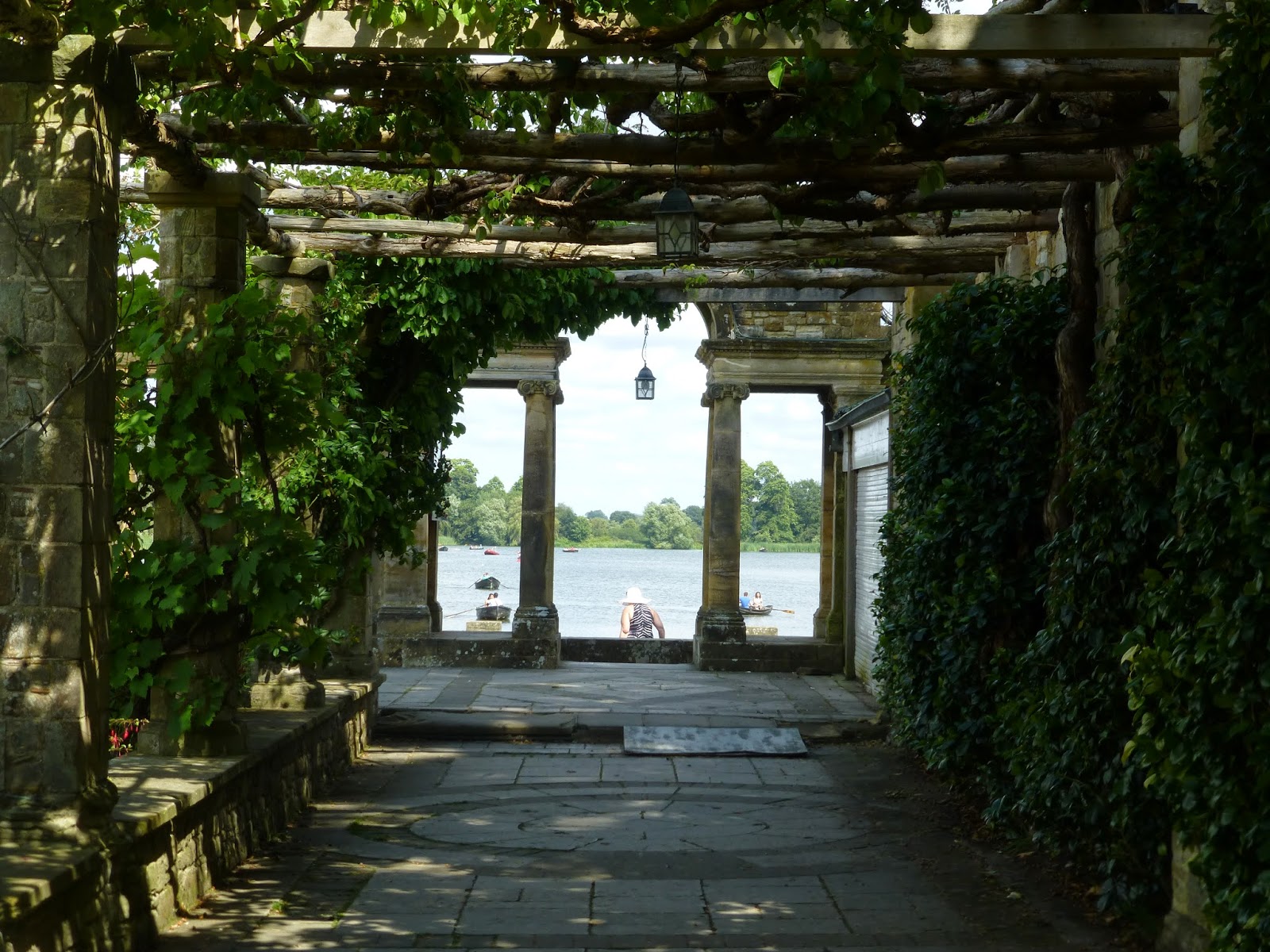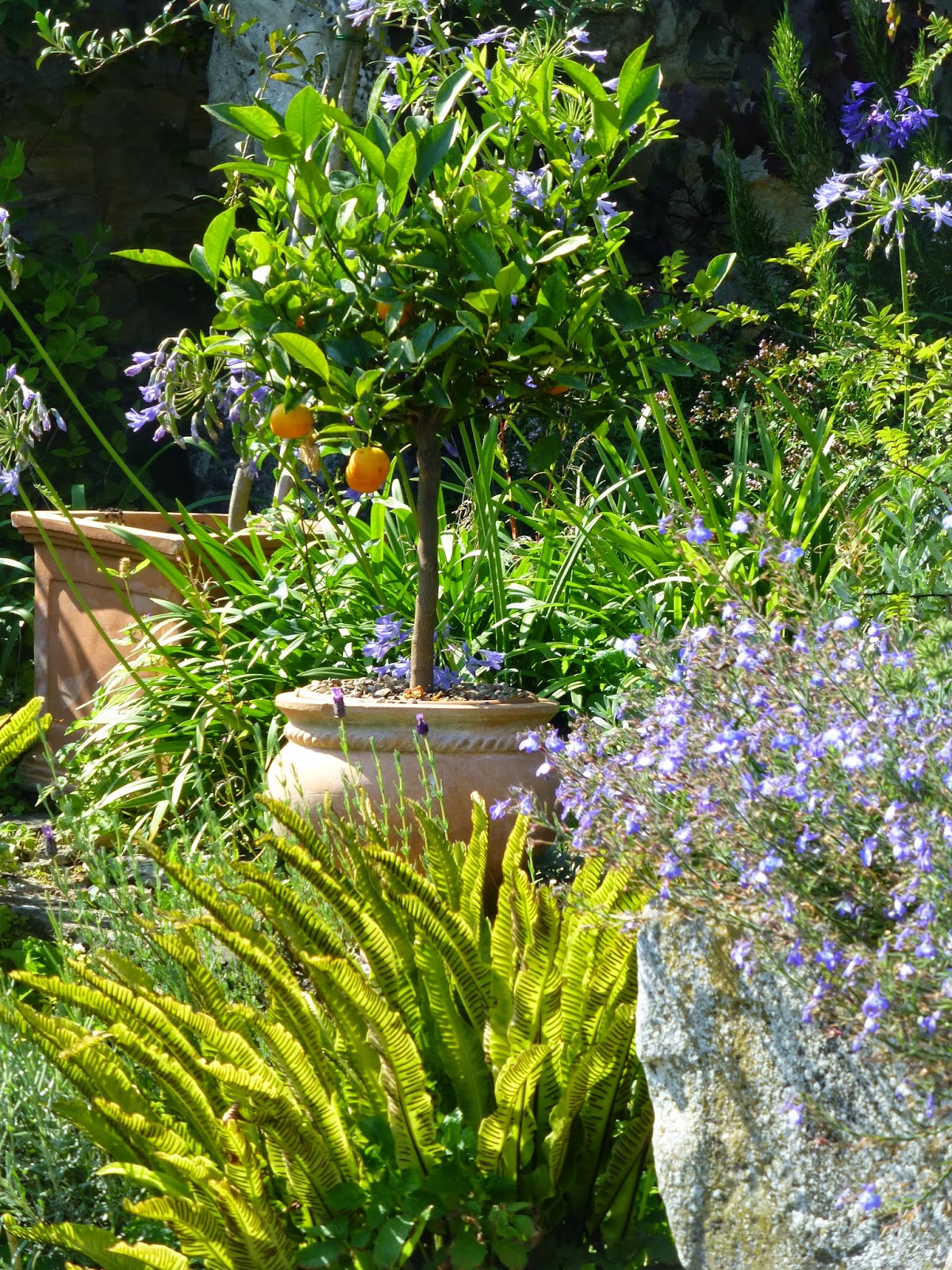Hever Castle ought to be easier to find that in it was. There is actually a station at Hever (albeit unmanned) with an hourly train service to the nearest transport hub, Oxted. The castle is only a mile away. But its not signposted. The most direct route is on public footpaths across fields. This too would add to the pleasure, if one was at all sure where the path was. One minute I was walking up a nice track by a field, then over a kissing gate and then err, in the middle of a field. Well, I managed to work out where the next gate was in the end.
I hit the the Henry VIII Inn for lunch. Couldn't recommend this highly enough as a country pub - lots of outside space on a warm day, good beer and excellent food. My crab salad hit the spot.
And it has a duck house.
So, onto Hever Castle, suitably replete. First one passes St Peter's Church.
With wonderful cynicism, the house was given later by Henry VIII to Anne of Cleves as part of his divorce settlement. It worked its way down the centuries and fell into great disrepair before, like Eltham Palace, being bought by rich Americans, in this case the Astor family, who lavished an enormous sum of money in the early part of the last century on making it a sound residence, with a mock Tudor "village" at the back to provide more space for guests (now the Astor wing and used for weddings and functions). This is like Eltham, a glorious place which fortunately was rescued before English Heritage got hold of it, in which case it would still have been a small ruin. But an ever so authentic one.
Inside the stone walls is a little Tudor beamed courtyard.
Inside one has all the Tudor features one might want, but many of them recreated rather than original. A very pretty minstrels gallery
A fine dining room with some original panelling. The table dates from around 1600, except for the top which is 20th century. A good example of the mix and match style of the interiors.
The library is a particularly nice addition by William Astor
The Morning Room is largely 17th century by contrast. Note the turned three-legged chair, apparently popular because three legs were better than four on uneven Tudor floors.
Upstairs is Anne Boleyn's bedroom, with a nice portrait of the queen. There is also what is described as part of her bed, but its been scientifically tested and its a fake, put together out of bits of old, but not quite old enough, woodwork
Upstairs does offer lovely views across the moat to the "village" behind the castle
Again great views out of the Long Gallery into the Tudor Gardens below (although the Long Gallery is rather a disappointment being filled with waxworks)
Overall, a small castle, and of enough interest if you want a quick roundup of Tudor history. But very sensibly, the admission price is heavily skewed in favour of the grounds over the Castle interiors.
 |
| The Astor Wing - their extension out the back. |
 |
| This bit of topiary is actually meant to be a chess set |
 |
| Note the dragonfly in the middle - not easy creatures to photograph |
But its the Italianate Gardens that are truly spectacular. The Astors had a particular penchant for marrying assorted bits of ancient or medieval sculpture with delightful planting.
Then at the end, beyond this portico, is an extensive boating lake. A walk around this is supposed to take an hour, but actually its much quicker than that. Although it took me almost as long to queue for a truly superb creamy ice-cream.














































































































































































































No comments:
Post a Comment